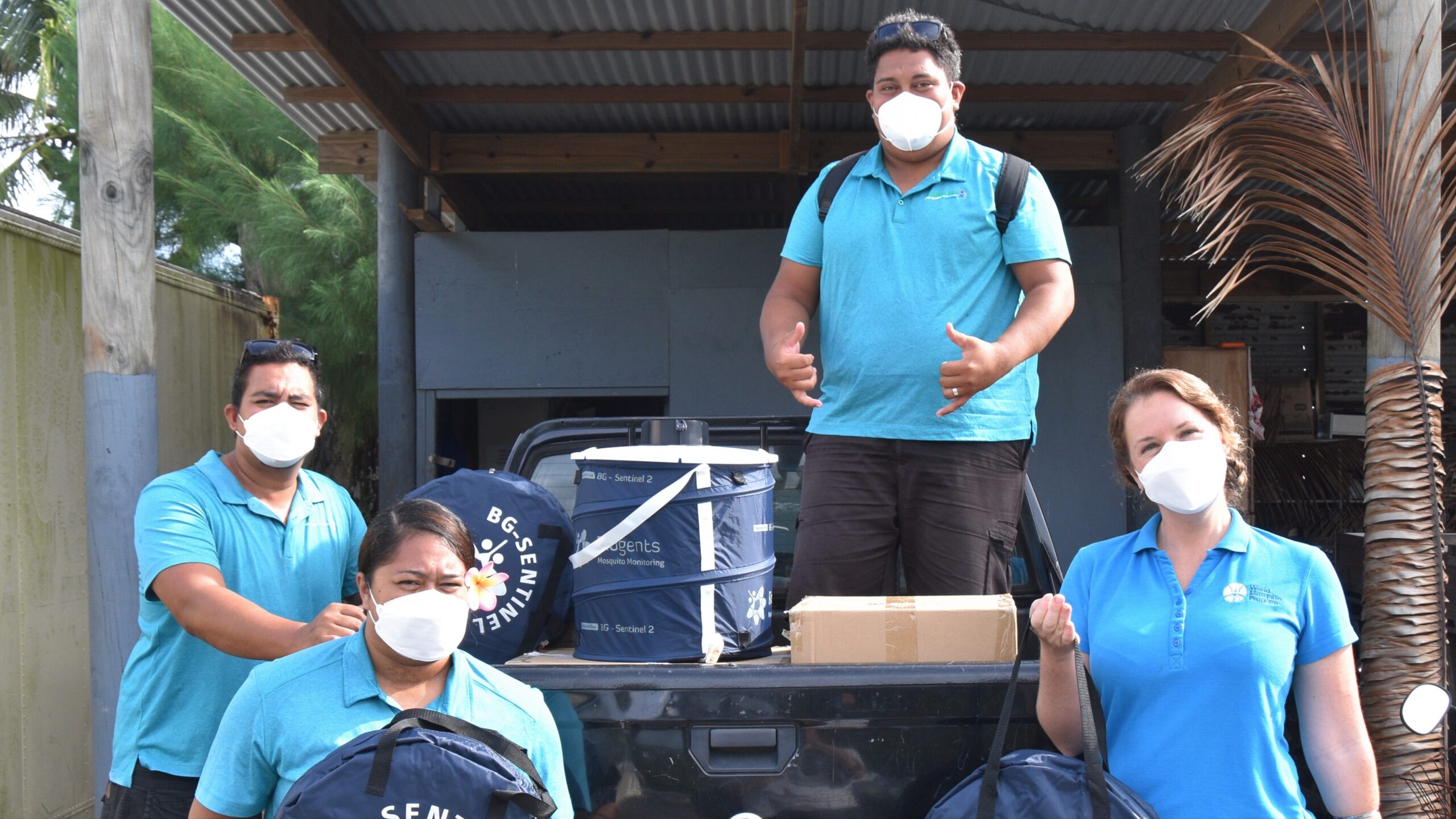New traps to survey Dengue mozzies
Wednesday 30 March 2022 | Written by Melina Etches | Published in Health, National

Field entomologist for the World Mosquito Program Carrie Forder (front right) and Te Marae Ora public health officers Rose Vainetutai, Christopher Tangapiri, and Paul Maaka. PHOTO: MELINA ETCHES/22032903
New mosquito traps have been placed and surveys in the community will be conducted to understand the local mosquito population and the impact of Dengue on health and the economy of the country.
Field Entomologist for the World Mosquito Program, Carrie Forder from Australia has arrived to work with Te Marae Ora health protection officers and set up mosquito traps at residential areas around the island.
“Basically, this is to survey of the local mosquito population so that we can understand what type of mosquitos are here and in what proportions the mosquitos carry dangerous diseases like Dengue Fever,” said Forder.
The lightweight traps will be spread out evenly across Rarotonga with one placed at every square kilometre, with the focus on houses where mosquitos - in particular the Aedes Aegypti mosquito (or Dengue mosquito which is dark coloured and has typical white markings on the legs and markings on the thorax) which only feed on humans, are generally found.
A small lower power use computer fan in the trap sucks in the mozzies, and the traps are placed where people generally sit and undercover to protect it from the elements, and as an incentive for people to support the project, participants will be given a credit voucher towards their power bills.
The mosquitos will be collected and the data will be used to assess if Rarotonga is a suitable place to implement the naturally occurring bacteria called Wolbachia, to reduce the ability of mosquitoes to transmit viruses between people, said Forder.
“By breeding mosquitoes that carry this bacteria, we can effectively prevent diseases from spreading in whole cities and even regions… this method is unique because it usually only needs to be applied once to be effective,” she said.

At the completion of the mosquito survey project, discussions with Te Marae Ora will determine if the Wolbachia can be a solution for Dengue control in Rarotonga in the near future.
The World Mosquito Program (WMP) is a not-for-profit group of companies owned by Monash University in Australia that works to protect the global community from mosquito-borne diseases such as dengue, Zika, yellow fever and chikungunya.
Forder has been working on the programme for more than six years, she started off in the first city wide trial in Townsville in 2011, and grew to love the work, “it’s a very fulfilling job, when you follow the mosquitos it takes you to some of the most wonderful places in the globe”.
“I really like to feel like I can help make a difference, it’s very rewarding job.”
The programme has been working to protect communities in the Pacific from mosquito-borne diseases like Dengue Fever since 2017, and the Wolbachia method has been implemented in Fiji, Kiribati, Vanuatu and New Caledonia, which has protected more than 350,000 people from Dengue outbreaks.
“We’re currently working in 11 countries, and so far have protected eight million people worldwide,” said Forder.
The WMP has formed a new partnership with the Government of Cook Islands, supported by Australian Dept of Foreign Affairs and Trade.









































